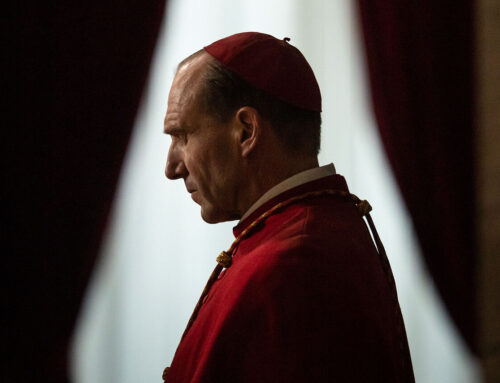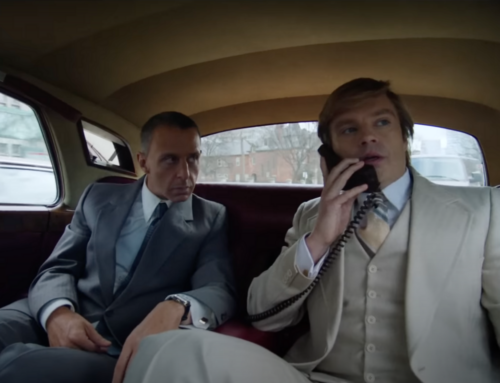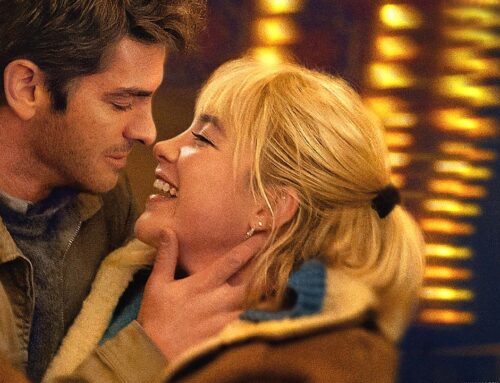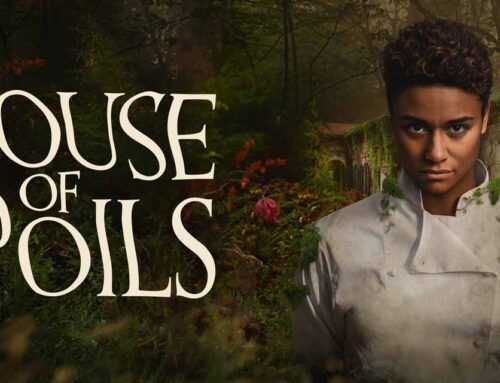I couldn’t wait to see Matt Damon and Ben Affleck’s first outing on a script together since their 1997 Oscar-winning “Goodwill Hunting.” Turns out, I could’ve waited. THE LAST DUEL is based on Eric Jager’s 2004 book recounting the true story of the the last government-sanctioned trial by combat in medieval France between Jean de Carrouges (Matt Damon) and Jacques Le Gris (Adam Driver) the man accused of raping Jean’s wife Marguerite (Jodie Comer). Ridley Scott who directed such emotionally engaging and visually compelling films as “The Martian,” “Blade Runner,” “Thelma and Louise,” and “Gladiator” directs 2 hours and 30 minutes of tedium interrupted by grimy battle scenes, and a platinum-haired Ben Affleck as the dissolute Pierre D’Alencon cavorting around the boudoir with intermittent barrages of snark directed at Jean de Carrouges. Never have I felt so disengaged or experienced a more antiseptic treatment of such a brutal, visceral, and humiliating crime.
All the performances are fine, but especially that of the luminous Jodie Comer, transfixing in a supremely subtle and nuanced performance, despite a leaden script that sets out to deliver three points of view on the rape. Ben and Matt wrote the knights’ point of view and Nicole Holofcener (“Can You Ever Forgive Me,” “Enough Said”) was enlisted to provide Marguerite’s. Under the laws of the day (vestigially represented in the 21st century by anyone still referred to as Mrs.) women were merely the property of their husbands and had no legal standing. Hence Marguerite’s husband had to fight her battle, now his injury, to the death; if he loses, it must be God’s will and she must die too– presumably for lying– by being burnt alive at the stake. Marguerite stands her ground, risks all, and speaks truth to power. I was prepared to feel outraged. Empowered. Something like that. Instead, I felt what I might feel watching a clinical examination of an incident, revealing little we didn’t already know, and with the emotional and psychological pieces missing.
“Rashomon”-like, the film tells the story three times from a different point of view based on what each character has been acculturated to believe. The camera focuses on the externals, which vary slightly with only the subtlest of clues to each person’s motivation and experience. The viewer is kept at a remove as though this were some sort of intellectual exercise. As recalled by the men, we notice that the crime is largely about ego and power, but the crime itself is represented onscreen almost the same to each man. This is odd, given that Marguerite’s husband wasn’t there and has only heard the story from his wife. The rapist imagines that she flirted and then his arousal becomes its own justification.
As Marguerite recounts it, there has been no flirting, only dutiful deference to Le Gris at the bidding of her husband, but again the representation of the rape barely shifts. We witness the crime from the outside instead of from the intimacy of her point of view: terrified, furious, and in emotional, psychological, and physical agony. As transcribed in the historical record, there were actually two men involved in the rape, one of whom assisted in holding her down. This is left out of the film. I remain baffled by the aesthetic choices made here which by my reckoning keep the viewer at a distance from the whole truth about what this woman suffered: a physical violation compounded by the weight of a culture designed to crush her and all of her gender into oblivion. “The last duel,” by my reckoning, has yet to be fought.
Which brings me to a gratifying swan song– the 5th and final James Bond film starring the fabulous Daniel Craig, dangerous and debonair, as 007, directed and co-written by Cary Joji Fukunaga: NO TIME TO DIE . It begins with a heart-stopping, high-flying, rip-roaring emotional roller coaster of a pre-credit sequence capped by Billie Eilish’s sultry voice snaking around her dark, sensuous theme song, as we plunge into a time-tripping, globetrotting, glamorous thrill ride between life and death, heartache and revenge, tuxedos and Astin Martins, as it falls to Bond to save the world again, this time from the scarred and noxious Lyutsifer Safin (Rami Malek). It’s all there from A to Z, with special attention to M (Ralph Fiennes) and Q (Ben Whishaw), Moneypenny (Naomie Harris), a newly named 007 (Lashana Lynch) who leaves Bond a tad stirred but not shaken, unlike the luscious Lea Seydoux as Bond’s French femme– fatale? PLUS a soupçon of Ana de Armas as dazzling agent-in- training Paloma, wielding wise cracks and weaponry with equal aplomb while executing a full split. It should be noted she does it all while barely wearing a black satin gown slit up to there and down to nowhere and never falling off. One major quibble: they should have dispensed with the child endangerment scenes– cruel and unnecessary. Otherwise have a ball and prepare to shed a tear.
.






Leave A Comment
You must be logged in to post a comment.